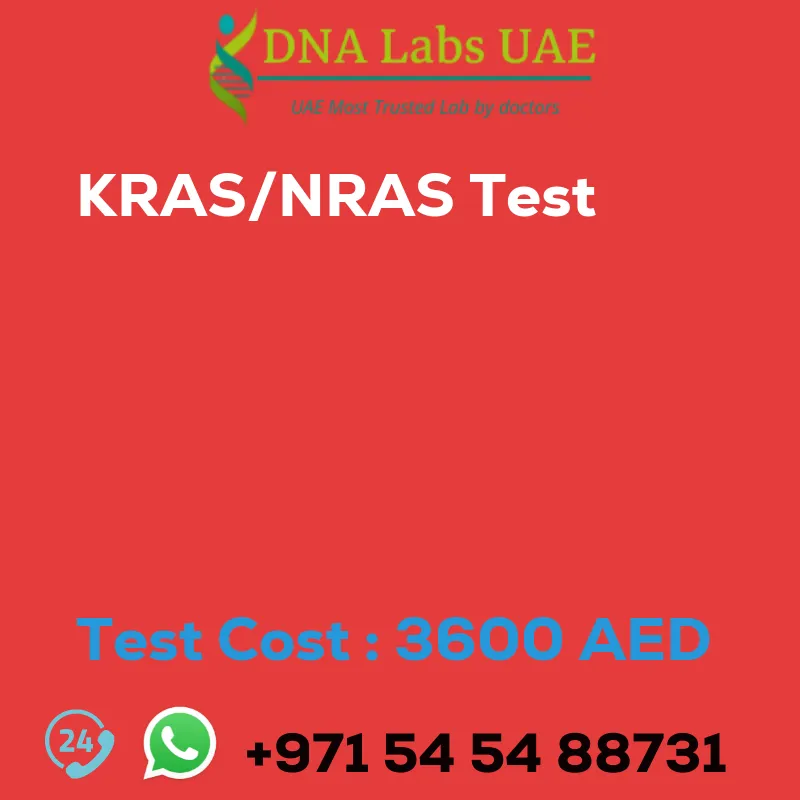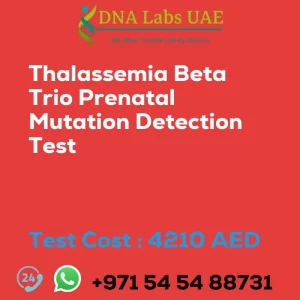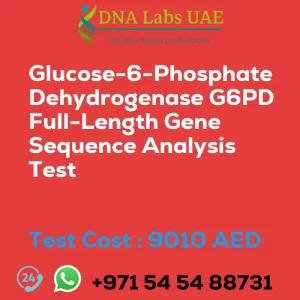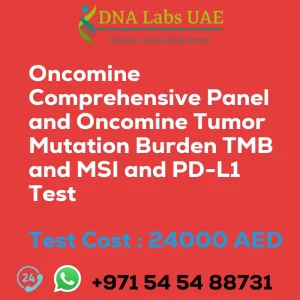KRASNRAS Test Cost AED: 3600.0
At DNA Labs UAE, we offer the KRASNRAS Test at a cost of AED 3600.0. This test is used to diagnose and detect mutations in the KRAS and NRAS genes, which are commonly mutated in various types of cancer.
Test Details
The KRAS and NRAS genes encode proteins involved in cell signaling pathways. When these genes are mutated, they can lead to the continuous activation of the signaling pathways, promoting cell growth, proliferation, and survival. This can contribute to the development and progression of cancer.
Testing for KRAS and NRAS mutations in cancer cells is crucial for treatment decisions. Certain targeted therapies, such as EGFR inhibitors, may be less effective in patients with KRAS or NRAS mutations. Therefore, identifying these mutations can help guide treatment options and prognosis.
Test Components
The KRASNRAS Test requires paraffin embedded tissue blocks as a sample condition. These tissue blocks are used to extract the necessary genetic material for analysis.
Price and Report Delivery
The cost of the KRASNRAS Test is AED 3600.0. The report delivery time is estimated to be 7-8 days.
Method and Test Type
The KRASNRAS Test is performed using Sanger Sequencing, a widely used method for DNA sequencing. This test falls under the category of Genetics.
Referring Doctor and Test Department
The referring doctor for the KRASNRAS Test is a Gynecologist. The test is conducted in the Test Department.
Pre Test Information
The KRASNRAS Test requires a doctor’s prescription. However, the prescription is not applicable for surgery and pregnancy cases, as well as individuals planning to travel abroad.
At DNA Labs UAE, we understand the importance of genetic testing in cancer diagnosis and treatment. Our KRASNRAS Test can provide valuable insights into the presence of mutations in the KRAS and NRAS genes, helping healthcare professionals make informed decisions for their patients.
| Test Name | KRASNRAS Test |
|---|---|
| Components | Paraffin embedded tissue blocks |
| Price | 3600.0 AED |
| Sample Condition | Tumor tissue |
| Report Delivery | 7-8 days |
| Method | Sanger Sequencing |
| Test type | Genetics |
| Doctor | Gynecologist |
| Test Department: | |
| Pre Test Information | KRAS,NRAS can be done with a Doctors prescription. Prescription is not applicable for surgery and pregnancy cases or people planing to travel abroad. |
| Test Details |
KRAS and NRAS are genes that encode proteins involved in cell signaling pathways. They are commonly mutated in various types of cancer, including colorectal, lung, and pancreatic cancers. KRAS and NRAS mutations are usually activating mutations, meaning that they lead to the continuous activation of the signaling pathways they are involved in. This continuous activation promotes cell growth, proliferation, and survival, contributing to the development and progression of cancer. The presence of KRAS or NRAS mutations in cancer cells can have implications for treatment options and prognosis. For example, certain targeted therapies, such as EGFR inhibitors, may be less effective in patients with KRAS or NRAS mutations. Therefore, it is important to test for these mutations in cancer patients to guide treatment decisions. |








